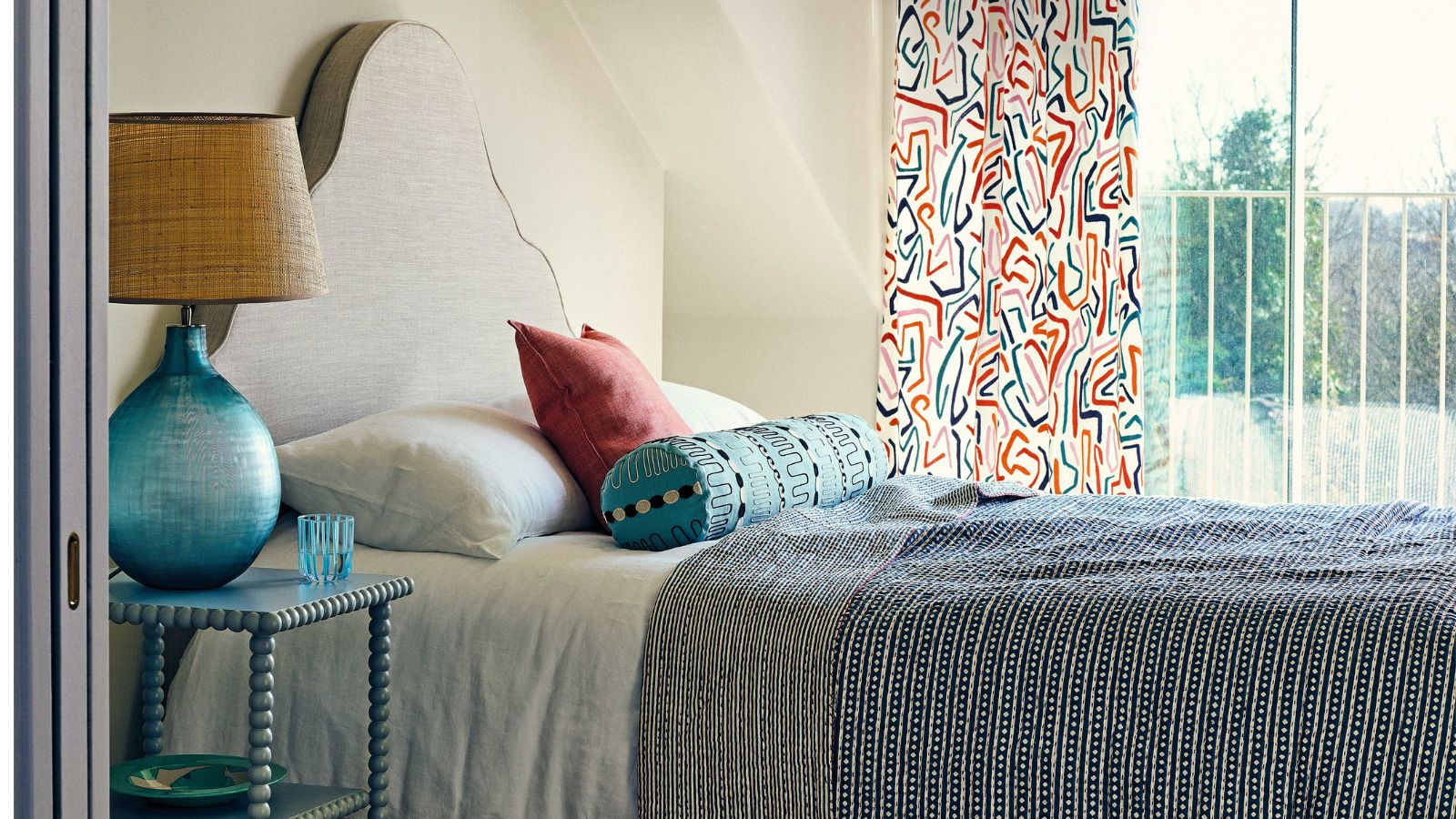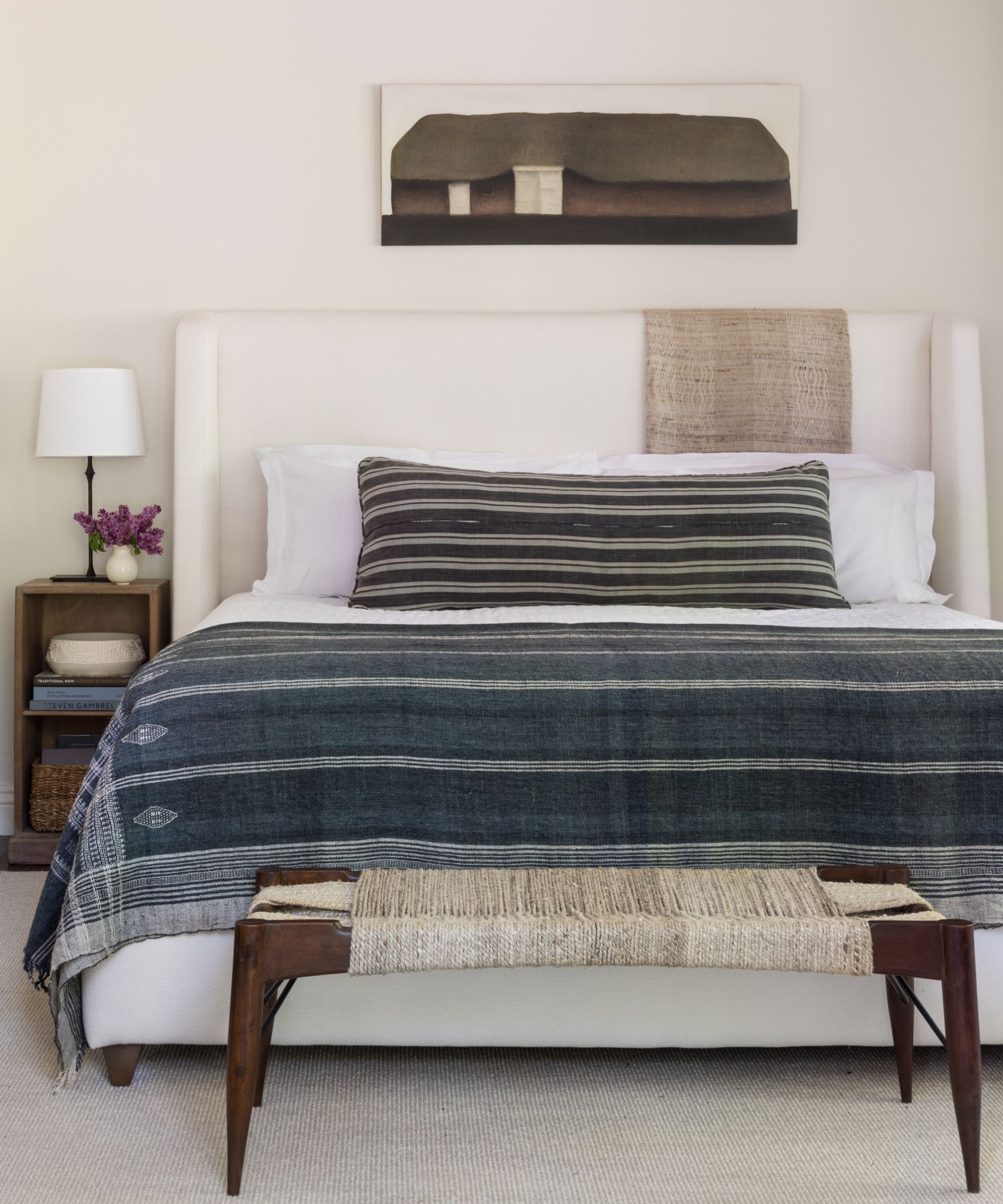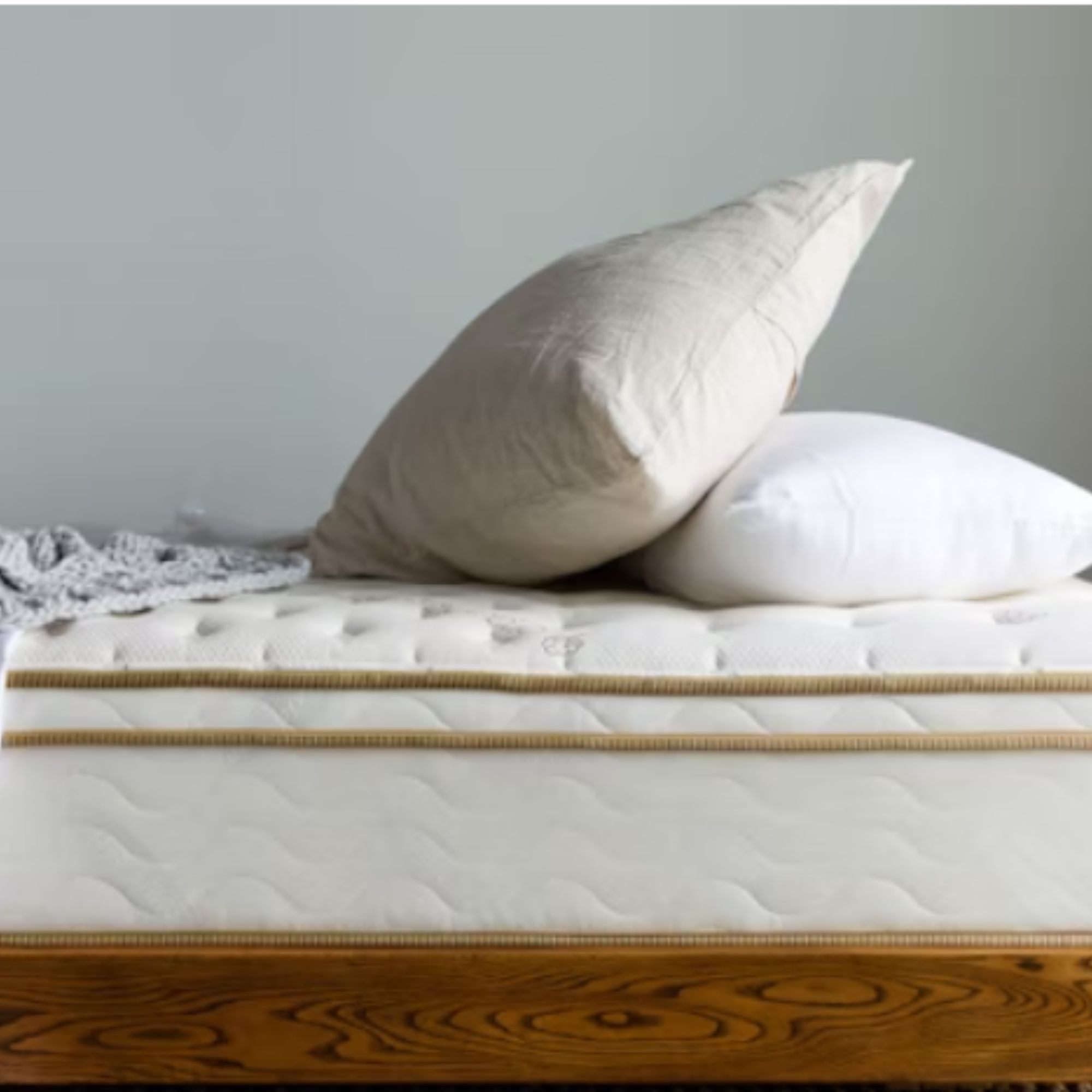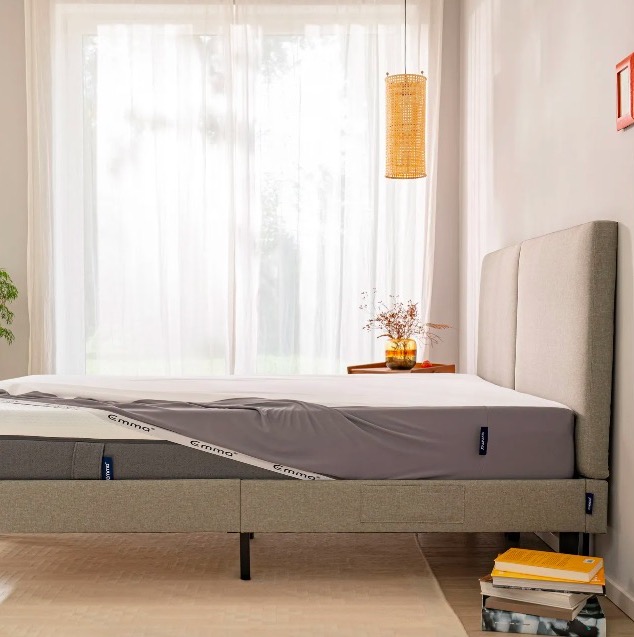
Sleeping positions aren't set in stone. While you might consider yourself a diehard back sleeper, side sleeper, or even starfish-er, your position might not actually be conducive to a good night's sleep. Switching up your sleep position could be a super-simple way to improve your sleep and wake up energized.
Sleeping on your side, front or back can affect everything from snoring to wrinkles. It can even make aches and pains worse or exacerbate health conditions like sleep apnea and sleep paralysis.
While there’s no one-size-fits-all, and it's pretty hard to control your body when you're asleep, there are some some positions that aid restful sleep. Even better, if you have specific health conditions or experience pain in your neck or lower back, choosing the optimal pose can alleviate those symptoms.
We quizzed the experts about the best sleep positions. We’ll cover the top choices for different scenarios and tips to enhance your slumber depending on your fave position.
How does your sleeping position affect your sleep?

Getting enough restful sleep is essential for overall health and wellbeing. 'Sleep is an important part of our day – or night, I should say. Quality sleep allows our body to regenerate – cells replenish, memories are formed, and dreams are had! Sleep is a time for healing. Sleep is life!' says Lauri Leadley, president, clinical sleep educator, and founder of the Valley Sleep Center in Arizona.
So why all the fuss about sleeping positions – do they really make a difference? 'Your sleeping position affects the quality of your sleep and general health, [including] how deeply you sleep.' says Dr. Sherry McAllister, chiropractor, and president of the Foundation for Chiropractic Progress (F4CP). If you often wake up feeling like a zombie, changing how you sleep could make a difference.
But get this, your choice of sleep position has a more far-reaching impact. '[It can affect] pain and discomfort in parts of your body, most notably your back, hips, and neck.' adds Sherry. It figures that you spend long periods in bed, so how you sleep can improve or worsen aches and pains. Plus, it influences issues like snoring, digestion, and heartburn, according to Sherry. If any of those are familiar, paying attention to your sleep position may help.
Of course, your sleep position isn’t a magic wand. Don’t forget to consider other factors like your sleep hygiene if you’re serious about sleeping better every night.
What are the best sleeping positions?

Certain sleep positions support a restful night’s slumber and can even relieve health problems. But ultimately, it comes down to what feels supportive and comfortable for you. 'Preferred sleep positions are as unique as the individual.' says Leadley. Experiment with what works best – you may only need to tweak your current position.
1. Sleeping on your side
Side sleeping is a popular choice, and for a good reason. 'It's the most highly recommended sleeping position due to comfort and a lesser likelihood of disturbed or interrupted sleep.' says Lauri.
Lying on your side gives your body ample support. 'The side position allows your spine to rest as it mimics the natural curves, relaxing the muscles and relieving tension.' explains Sherry. This minimizes aches and pains in your neck and back caused by poor posture. Plus, Sherry recommends this position if you struggle with heartburn or digestive discomfort.
Does snoring keep you up at night? Lying on your side rather than your back opens the airways and reduces the chances of snoring and sleep apnea. 'People with mild sleep apnea benefit from being a side sleeper. When sleeping on your back, the tongue falls back and obstructs the airway. The lack of oxygen causes the brain to jolt the body to wake, causing the person to wake up gasping for air.' says Sherry. Side sleeping can ease these symptoms.
If you’re a wannabe side sleeper, but you tip over onto your front, try this trick; 'Sleeping on your side with a pillow between your knees can stop you from twisting and rolling over to your stomach.' advises Sherry. And consider switching to the best mattress for side sleepers for extra comfort.
2. The fetal position
If you want to switch things up, the fetal position is a variation on side sleeping. It may be familiar from yoga – you lie on your side with your knees tucked up. It offers many similar benefits to side sleeping and can be super comforting. If you’re pregnant, you’ll be pleased to know the fetal position can provide much-needed relief. 'Many pregnant women sleep on their left side to help with discomfort.' says Sherry.
So what’s the secret to a good night’s sleep in the fetal position? Don’t curl up too tight, or it may result in stiffness the next day.
3. Sleeping on your back
Another top position is lying on your back. 'Sleeping on your back with proper support may be the position of choice if injury or prevents you from side sleeping.' says Sherry.
'Benefits of this position include full back support from your neck to your lower back, reduced hip and knee pain, and reduced pressure and compression in the body, which is a positive for your health.' Sherry adds. Back sleeping is a fantastic alternative to the side if you experience hip and shoulder pain, as it puts less strain on those areas.
Sleeping on your back is also beneficial if you're suffering from a cold. Propping yourself up with an extra pillow can make it easier to breathe. Another perk of sleeping on your back is it can minimize wrinkles, as it reduces pressure on your skin.
An extra tip for sleeping on your back is to 'place a pillow or blanket underneath your knees to relieve the pressure on your spine.' recommends Lauri.
One sleep position to avoid – sleeping on your stomach
Sleeping on your stomach is not recommended for most people. 'It may be helpful for those who snore, but this one benefit is outweighed by all its drawbacks.' advises Sherry.
'Stomach sleeping should be avoided as it impairs the natural curve of the spine. It is also associated with back and neck pain. Stomach sleepers may unknowingly contribute to decreasing mobility and flexibility by chronic stress to joints, ligaments, and muscles.' adds Sherry.
If you don’t want to change your sleeping position, you can modify it to reduce strain on the body. 'If you enjoy sleeping on your stomach and don’t experience any troubles, make sure you use a softer pillow so that your neck doesn’t rest at odd angles.' advises Lauri.
The best mattresses for any sleeping position

This is our most comfortable mattress on test, that provides the perfect balance between comfort and support – suitable for all sleepers. Dubbed an innerspring hybrid, the Saatva Classic combines the supportive structure and breathable qualities of individually wrapped coils with the comfort and contouring of high-density foam across five layers.
Read the full Saatva Classic Mattress review to find out more.

Suitable for multiple sleeping positions and our tests found it the best memory foam mattress. This mattress 'instantly impressed' our tester Chiana Dickson, who found that even just sitting on this box bed was comfortable. A medium-firm bed, it gently cushions you without the sinking feeling of some memory foam mattresses. It's springy and responsive, bouncing back to form, and always feels stable and secure.
We have a full Emma Original Mattress review with more detail.

If you suffer from back pain this Nectar memory foam will cradle you to tackle any aches (no matter what position you sleep in). Far from basic, the Nectar mattress is soft and supportive, and if you suffer from back pain, it won't cost much to help relieve the pain. In our best mattress guide, it's ranked as the best mattress for back pain (which is impressive given its affordable price). Our reviewer Casey found it alleviated some of the pain from her fibromyalgia.
Our Nectar Memory foam mattress review goes into more detail.
Sleeping position FAQs
What is the healthiest sleeping position?
Sleeping on the side is considered to be the most beneficial position to sleep in. Sleeping on your back can also be a good option as both of these are more likely to support your spine than sleeping on your front. However, if you naturally sleep on your stomach, the risk of any aches and pains can be allieved by choosing a good quality, supportive mattress and the right type and amount of pillows.
Is it better to sleep on your left or right side?
It's personal and depends on if you have any health issues or specific conditions that might be effected by which side you sleep on. During pregnancy, sleeping on the left side can be comfier if you suffer from any digestive issues or acid reflux. Research suggests that sleeping on your right side can be more beneficial to those with heart conditions.
Sleep position is ultimately up to. The most important thing is your comfort. If the way you've always slept keeps you up at night, it could be time to switch up your sleep position, and if you're still uncomfortable, it could be time to upgrade to one of the best mattresses.







